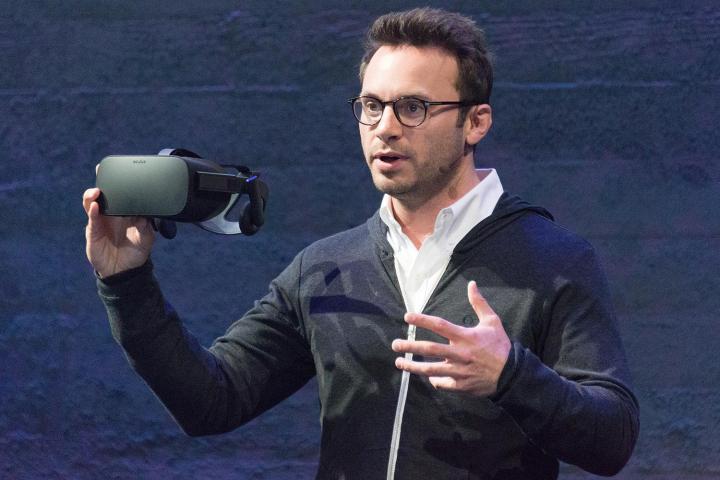
The first major thing that Oculus announced was that it will be making it easy for consumers to buy a computer that can support the headset. The Oculus Ready PC program will make it so gamers can quickly see PCs that meet the recommended settings. These settings are 8GB RAM, an Intel i5 processor, and an NVIDIA GTX 970 / AMD 290 GPU. Approved systems will be marked with a distinctive Oculus sticker, similar to Microsoft’s “Windows 10 Ready” stickers used earlier this year.
A major critique of Oculus, and VR in general, is the cost and confusion of getting a computer that would work with VR. Is the average consumer going to be willing to shop around for a gaming PC in order to experience Oculus? Hopefully, this program would make that less of an issue. As far as price, Oculus is promising PCs that cost under $1000, so while not exactly budget, they are at least in a range that could be considered affordable.

Speaking of games available on the Rift, Palmer Lucky himself took to the stage to announce what was probably one of the most exciting pieces of news from the early part of the conference, and that’s Minecraft Windows 10 Edition with Rift support. While the game has had unofficial support for some time, fans of the franchise should be quite excited to be able to get it with full, official support, as the unofficial release did have some issues. You’ll have to wait, though, as there’s no firm date for support, and it’s unlikely to come until the consumer Rift has been released.
On stage, Oculus spent time talking about Oculus Platform, which is essentially the front-end for the service. It will feature social plugs, such as lobbies, or Rooms as it calls them, where players can connect and jump into other experiences with each other. It will also allow developers to add in-app purchases and cloud saves to their games. There will also be a digital storefront that will be accessible in the headset itself, as well on PC and mobile devices. This is designed so that developers can get their experiences in front of more players.
Oculus Concepts is a rather interesting part of Oculus Platform. It allows developers to put out projects that aren’t finished yet, sort of like Early Access on Steam. For people who owned DK1 and DK2 kits, one of the most fun experiences on the Rift is messing with the weird little demos that people have created, and with this program, it will be possible for experiences like this to keep coming even once the headset is available to consumers in Q1 2016. It will be available on Gear VR first, and on Oculus next year.
Unfortunately, Oculus did not talk about pricing or the final release date.


